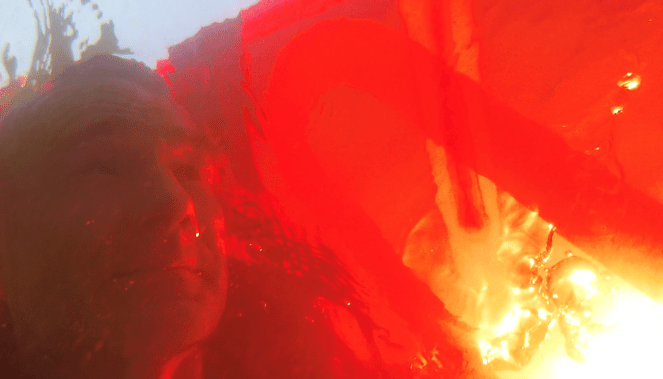Conservation and Tate don’t go well together
What%*!? – was my first reaction when our 14-year old son showed me a TikTok video of Andrew Tate. Second reaction: Let’s have a 2 hours gender equality class.
As I speak with my son, I recall some of the readings I did of Simone de Beauvoir, Donna J Harraway, and Paulo Freire at the University. I try to translate some of it into a boy’s head, soon to become a man.
A truly free man, I say, is respectful of all human beings, and nature. (I remember how he wanted to let insects out and not smashing them when he was little). He is a caring, kind and smart guy and about to become an athlete. And he stands up for his female friends at school if someone treat them with disrespect. None of these values challenge your masculinity. Quite the opposite, I say.
This is what the really cool girls want. Oppression of others limits your own freedom. He nods. I think he gets it.
This post is not a about Tate or the “destruction of masculinity”. Yes, I am deeply worried that Tate-like attitudes find such a big audience among young men and boys. It is also very clear that this it not the kind of attitudes and values that will help us protect the ocean.
The last three years have reminded us that global crises don’t come one at a time.
The pandemic, the climate crisis and the war in Ukraine. And, the evolving misogyny crisis.
The problem is that the natural world doesn’t care about our feelings, wars, hatred, fear or love. It needs protection and it needs us to stop damaging it and redirect our energy towards conservation.

Heat and acid. Coral reefs can’t take it.
I remember one day back in the day on Maui, Hawaii, at the garbage dip not far from the airport. The beautiful colour of the ocean in the horizon, crisp, fresh air and tropic, lush and green surroundings was a stark contrast to the emissions from an air plane that took off over my head. I literally saw how it fell to the water surface.
Gender is everywhere
For a white male from a wealthy Western country, approaching 50, I am probably a person with the least authority to talk about gender. I have never felt any form of abuse, discrimination or had my rights or opportunities being limited. My mother fought for women’s rights as a politician in a conservative party, I studied feminist scientific theory at the university and in my Master’s thesis I studied human rights education for women in rural Senegal. This is as close as I get to gender issues.
Gender equality and marine protection
Marine protection has a serious gender issue. As in every societal sector, women are excluded from roles in conservation and natural resource management. But in landscapes and organisations where they are meaningfully included, environmental outcomes improve.
In aquatic resource dependent communities, research has found that men tend to have greater flexibility to participate in adapted livelihoods or alternative livelihood initiatives.
Gender imbalance is also reflected in the academia. While it is going in the right direction, female authors in coral reefs science was still 33 per cent in 2018.
Gender and decision making
What are proposed solutions?
Monitor fisheries catches and communicate information back to their communities in an understandable form. This approach puts data and insights in the hands of local women, opening the way for them to participate actively in management discussions.
Fair mechanisms for savings and loans so that women can invest in themselves, their livelihoods and their families.
Encourage reflection about traditional gender norms, and work to transform existing structures to give women a more equal role.
Training in leadership skills, public speaking, participatory fisheries management and the technical skills underpinning our work.
Googling “girl protects coral reefs” a scholarship in Indonesia comes up. In nine weeks they give women the knowledge, tools, experience, and network to set up and monitor a coral restoration project.
Evelyn Malicay in the Philippines is an example of how fighting for women’s rights also is firghting for marine protection.
Featured image: Two of the interviewees during my Master’s thesis in 2002 in Senegal. Findings? Human rights education improved women’s position socially and culturally, but it didn’t help in decision making processes to fight poverty.



I’m not that much of a online reader to be honest but your blogs really nice, keep it up! I’ll go ahead and bookmark your site to come back down the road. Cheers
wonderful points altogether, you just won a new reader. What may you suggest about your submit that you just made some days in the past? Any positive?
Hey, you used to write great, but the last several posts have been kinda boringK I miss your super writings. Past several posts are just a bit out of track! come on!
Some truly prize content on this website , saved to my bookmarks.
fantastic post.Never knew this, thanks for letting me know.
I used to be more than happy to search out this net-site.I wished to thanks for your time for this glorious learn!! I undoubtedly having fun with each little little bit of it and I’ve you bookmarked to check out new stuff you weblog post.
I really like your writing style, wonderful info , thankyou for posting : D.
You made some decent points there. I looked on the internet for the issue and found most people will consent with your website.
Superb post however I was wondering if you could write a litte more on this topic? I’d be very grateful if you could elaborate a little bit more. Thanks!
I saw a lot of website but I think this one has something special in it in it